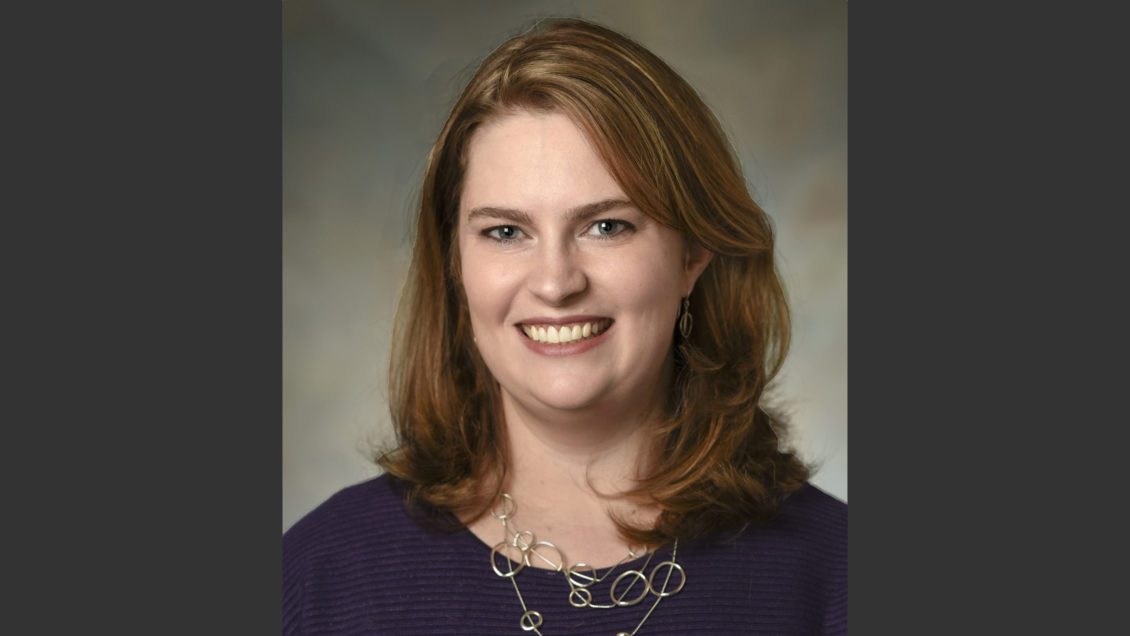A new endowed chair position in Clemson’s College of Behavioral, Social and Health Sciences (CBSHS) has been created to specifically research aging and its effects on a variety of issues related to brain functioning. Dr. Lesley A. Ross will serve as the SmartLIFE Endowed Chair in Aging and Cognition, the first endowed chair in the college.
Ross will be a tenured faculty member in the psychology department and will work collaboratively across the college and university on research related to aging and cognition. She will serve as associate director for the Clemson University Institute for Engaged Aging and will have dedicated laboratory space at the Oconee County Campus of Prisma Health.
Ross said the need for endowed chair positions focused on healthy aging are increasingly important due to multidisciplinary requirements of the field and the increasing proportion of older adults across the world. As older adults have become the fastest growing demographic in the nation, changes in health care and technology are required to meet the needs of this diverse group of adults. However, Ross said scholarship and research in the area of older adults can’t just be about a number.

“Longevity is easy to quantify, but older adults don’t focus as much on age as they do on quality of life,” Ross said. “My research, and the work of this position, focuses on keeping older adults happy and independent as long as possible while fighting the negative stereotypes associated with aging.”
The land-grant mission of Clemson University and the outreach work of the College of Behavioral, Social and Health Sciences’ Institute on Engaged Aging were a large part of what attracted Ross to the position. As she takes on the role of associate director of the institute, she looks forward to working with Cheryl Dye, its director, and doing her part to continue the institute’s focus on both research and community engagement.
Having researchers and students engage with older populations is the key to successful research and, perhaps most importantly, translating research findings into useable products that help the community, according to Ross. She looks forward to working with adults in rural and urban areas throughout South Carolina.
“Research and published papers on aging and cognition are important, but it is equally important to stay engaged with the community and the people we’re trying to better understand and serve,” Ross said. “Real people have to be a piece of that research, so I strive to never have a disconnect between our work and the needs of the community.”
SmartState centers were formed in 2002 as one of a series of legislative acts intended to accelerate South Carolina’s knowledge economy transformation. Endowed chairs in these centers are world-class research scientists and engineers who are the intellectual talent of the program. These endowed chairs fulfill many roles: researcher, entrepreneur, mentor and educator. Each is supported by a research team consisting of junior faculty members, research faculty and graduate students.
Patrick Raymark, chair of the psychology department, said Ross is the ideal candidate to connect researchers across the college and university. Raymark sees her acting as a mentor for tenure-track faculty, and he sees her transportation-related research connecting directly to research in the CBSHS Human Factors Institute. Raymark also said Ross will serve as a linchpin between a variety of faculty conducting research at the different campuses of Prisma Health, as well as with researchers at the Clemson University International Center for Automotive Research.
“Dr. Ross’ work is theoretically sound, methodologically sophisticated and aimed at addressing issues of practical significance; this is a relatively rare trifecta,” Raymark said. “She has a proven ability to generate and manage several successful interdisciplinary research collaborations.”
Leslie Hossfeld, dean of the College of Behavioral, Social and Health Sciences, said Ross’ expertise will benefit the continuing, land-grant mission of the college that has become its focus: building people and communities. Endowed chairs in the SmartState program come to South Carolina to make a difference in economic development and entrepreneurship, education and the state’s quality of life, and Hossfeld said she has little doubt that Ross will make a major mark in all of these areas.
“Dr. Ross’ work is a prime example of the type of convergence in research, outreach and practical application of study that our college is built upon,” Hossfeld said. “We are delighted to welcome her to Clemson and to our college, and I look forward to the work she will do with our state’s older population and with the faculty staff, and students at Clemson University.”
Some of the recent research and outreach projects Ross has engaged in include daily cognitive and psychosocial assessments of older adults’ use of smartphones, an assessment of the effectiveness of brain games to improve everyday life, and older adults’ perceptions of using exergames for exercise and maintaining cognition.
Ross has most recently served as an associate professor of human development and family studies at Penn State University. She earned a Ph.D. and master’s degree in lifespan development psychology from the University of Alabama at Birmingham. She also holds a master’s degree in secondary education and a bachelor’s degree in psychology and French from the University of Montevallo.
END
Get in touch and we will connect you with the author or another expert.
Or email us at news@clemson.edu

